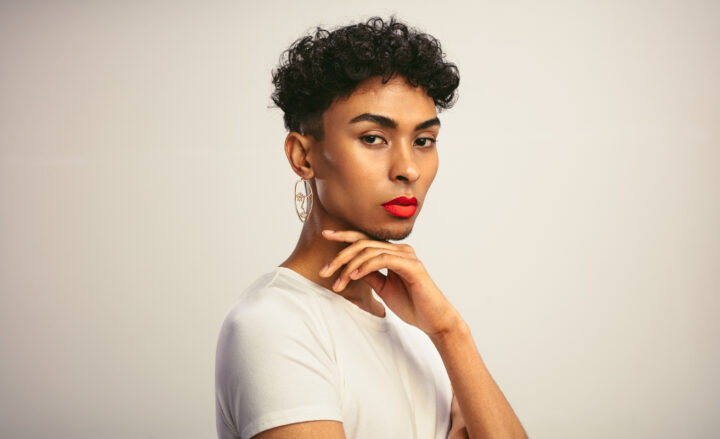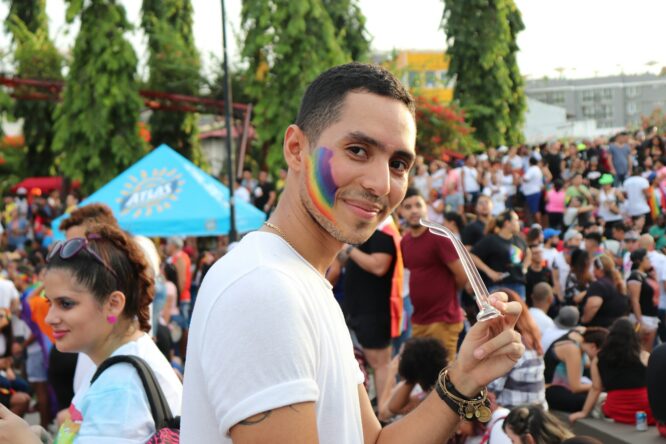We throw around labels like gay, straight, bi, pan, ace, but when it comes down to it, sexual orientation isn’t always something you can sum up in a neat little box.

For some people, labels help things click into place. For others, they feel way too rigid for something that’s actually pretty personal, emotional, and constantly changing, and that’s okay. Sexual orientation is about more than just what you write in your dating profile, and it’s not something you can pin down. Here’s why it’s much more complex and nuanced.
Feelings don’t always follow the rules.

You can know what you usually feel drawn to, and still get surprised. Maybe someone outside your “type” catches your attention. Maybe a crush creeps in where you weren’t expecting one. It happens, and it doesn’t mean you’ve been wrong about yourself. It just means people are complex. Sexuality isn’t a static setting. It can be steady for some, fluid for others, and full of grey areas for most. Trying to force it into one tidy answer can feel like trying to draw a line in water.
Labels can help, but they’re not the whole story, nor are they for everyone.

For a lot of people, finding a label feels validating. It gives you something to hold onto, a way to explain your experience. However, it’s also okay if you try one on, and it doesn’t fully fit, or if you outgrow it later. Think of labels as helpful tools, not lifelong commitments. They’re there to support you, not restrict you. If one brings comfort, great. If it doesn’t? You’re allowed to change your mind or keep it vague.
Orientation isn’t just about who you sleep with.

Attraction isn’t only about what happens in the bedroom. It’s emotional, romantic, physical, intellectual, and not always in that order. You might be romantically drawn to one gender, but not sexually, or vice versa. It’s not one-size-fits-all. That’s why some people identify with split labels, like “biromantic asexual” or “heteroromantic demisexual.” Others just say “it’s complicated” and move on. Either way, it’s all valid.
Curiosity doesn’t cancel your identity.

Wondering what it would be like to kiss someone of another gender, or feeling drawn to someone unexpectedly? That curiosity doesn’t mean your whole identity has to be redefined on the spot. You can be curious and still feel grounded in who you are. Exploring doesn’t mean you were faking before. It just means you’re human and open to understanding yourself more fully.
Who you’ve dated doesn’t always reflect how you feel.

Some people have never dated the gender(s) they’re attracted to, but that doesn’t make their orientation any less real. Life circumstances, safety, timing—it all plays a part. Your history doesn’t invalidate your identity. You don’t need proof in the form of exes to know how you feel. You’re allowed to know what pulls at your heart, even if it hasn’t played out outwardly yet.
Attraction isn’t always instant.

Some people feel that “spark” right away, while others take time. Being slow to warm up doesn’t make you broken, or confused. It just means your orientation might work a little differently, and that’s fine. Especially for those who are demisexual or on the asexual spectrum, connection builds gradually. There’s no one right way to feel drawn to someone. Quick or slow, it’s all part of the same spectrum.
People change, and so do labels.

You might feel one way at 18 and differently at 28. That doesn’t make either version of you wrong. We grow, we learn, and sometimes our understanding of ourselves changes along the way. Sexuality can evolve, and not because it was “just a phase,” but because you’re a person, not a machine. Growth is allowed. Change is allowed. You’re still you.
Pressure to “figure it out” can do more harm than good.

There’s a weird cultural pressure to name your orientation as soon as possible and stick to it forever. But the reality is, most people figure it out slowly, and sometimes it stays a bit blurry. You don’t need to rush to lock it in. It’s okay if you’re still exploring or if your answer keeps changing. You’re not behind. You’re just moving at your own pace.
Cultural and family expectations can muddy things.

Depending on where you’re from or how you were raised, certain orientations might feel off-limits or invisible. That doesn’t mean your identity isn’t real. It just means it’s harder to name when you’ve never seen it reflected. Give yourself grace. It’s hard to claim something you were never given permission to even consider. That doesn’t make your experience any less valid. It just makes your journey a bit more layered.
Sometimes you just… like someone.

Not every connection comes with a tidy label. Sometimes you’re drawn to someone in a way you can’t explain, and that pull doesn’t fit into the usual boxes. That doesn’t make it any less real. People are unpredictable, and so is attraction. You don’t need a full philosophical breakdown to follow your feelings, as long as it’s safe and consensual, it’s okay to just… see where it goes.
You can be proud without being loud.

Not everyone wants to wave a flag or come out with a big announcement. Some people are quietly sure of who they are and don’t feel the need to broadcast it. That’s not shame; that’s just preference. Visibility matters, but so does comfort. Whether you’re open, private, or somewhere in between, your orientation is still valid. Pride looks different for everyone.
It’s okay to still have questions.

You might be confident in one area and still unsure in another. Or feel like you’ve got it figured out one month and unsure the next. That doesn’t mean you’re lost. It means you’re still learning. Questions are part of the process, not a sign you’re doing it wrong. Sexuality isn’t a pop quiz; it’s a lifelong relationship with yourself. Take your time.
You don’t owe anyone an explanation.

People might ask. They might assume. They might push for a label so they can “understand you better.” However, the truth is, you don’t have to explain your orientation to anyone unless you want to. Your identity is personal. If sharing feels right, go for it. If it feels draining, you don’t have to hand out answers like pamphlets. You’re not a project, just a person being honest with yourself.
Respect matters more than labels ever could.

At the end of the day, how we treat each other counts more than how neatly we identify. Respect, kindness, safety—these are the things that actually shape relationships, not the words we use to define them. Whether someone’s orientation is familiar, fluid, or something you’ve never heard of, treating them with respect goes a lot further than trying to categorise them.
You’re allowed to just be you.

No perfect label? Still figuring things out? Changing your mind from time to time? That’s not failure, that’s being human. Orientation doesn’t always need to be pinned down. Sometimes it just needs to be lived. You don’t have to prove yourself to anyone. You don’t need to make sense to the internet. If it feels real to you, it is. And that’s more than enough.



